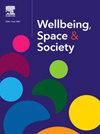Gender and public works intervention in rural Ghana: An empowerment framework perspective
Abstract
Transformative social protection requires an understanding of how interventions affect women and men. Gender inequality remains pervasive in societies. However, mainstream social protection evaluations have seldom been informed by gender analysis beyond sex categorisation. This paper focuses on the Labour Intensive Public Works Programme in Wa West District of Ghana to discuss the gender dynamics in participation outcomes. We analysed data from ten in-depth interviews with district assembly's social welfare and LIPW project staff and eight focus group discussions with programme participants and nonparticipants. In-depth interviews with the key informant clearly show that though the programme implementers acknowledge differential labour demands among participants, it is carried out in a manner that sustains gender inequalities through the endorsement of social stereotypes. The analysis revealed that an increase in women's income did not augment their ability to bargain in household decision-making. The study draws on Longwe's Women Empowerment Framework to discuss the results. This paper explains why and how this new knowledge can be used to inform theoretical and future policy debates on social protection.

 求助内容:
求助内容: 应助结果提醒方式:
应助结果提醒方式:


